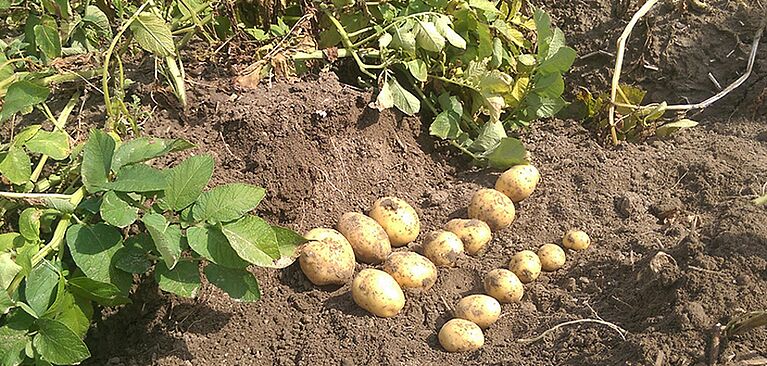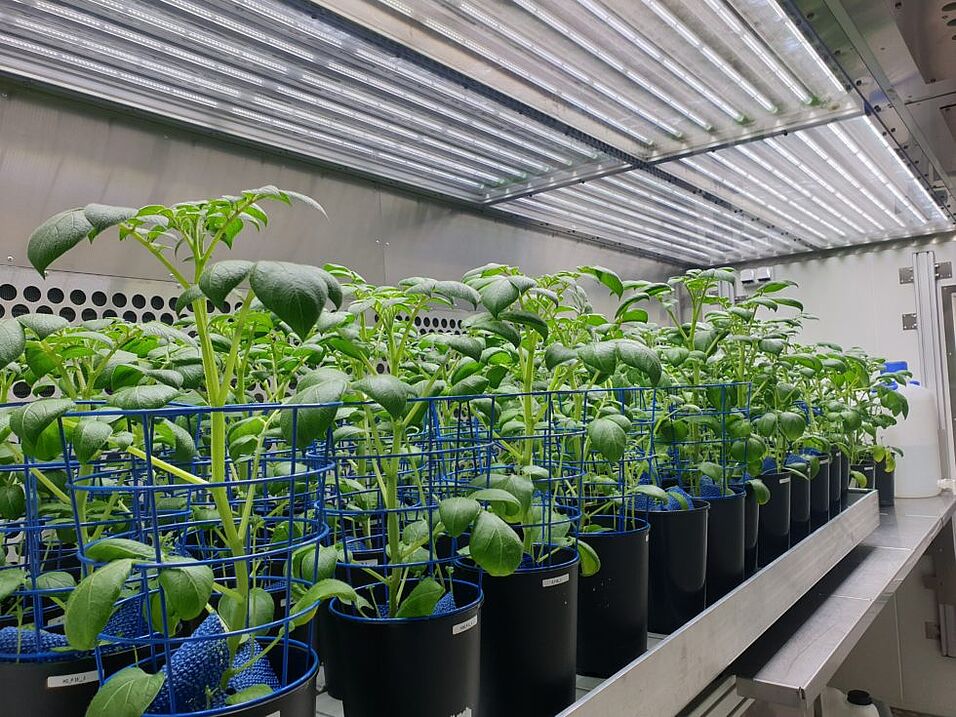The project has now reached its final phase and in March 2023 a new round of automated high-throughput phenotyping with two selected varieties will be carried out. This work will be done at the facilities of the screening technology developer Photon Systems Instruments (PSI)in Brno (Czechia). Starting from tissue cultured plantlets, the varieties Desirée and Lady Rosetta will be grown on soil under strictly controlled environmental conditions. These two varieties were selected from the previous field trials that have been carried out in the consortium during the past two years in Spain, the Netherlands, and in Austria. Moreover, glass house trails done at the Universities in Erlangen, Utrecht and Wageningen showed contrasting levels of tolerance to the two different stresses that are studied by ADAPT; heat- and drought-stress as well as water logging (both at single level but also in combination, which is more realistic in view of the climate change).
In the first phase we improved the experimental setup, for instance regarding the intensity and duration of stress treatments and best time for sampling. Based on the data obtained so far, we can now look into these processes in two contrasting potato varieties in great detail and combine the automated phenotyping with a detailed analysis of morphological and physiological responses to different stresses. Furthermore, the biochemical and molecular changes in response to single and combined stresses will be also measured and analysed at the network level to understand how potato plants acclimate to these stresses and why some varieties do better than other ones.
For this purpose, ADAPT researchers will again take a number of samples at critical time points during the experiment, which will then be analysed by multiple omics approaches. At the Universities of Erlangen and Vienna, ADAPT researchers will follow the changes in the proteome and metabolome, and in Olomouc the plant phytohormones will be measured while at the National Institute of Biology (NIB) in Ljubljana, the changes in gene expression will be monitored.
The further integration of all these data will then be used for updating the stress response models that were built by the NIB team using previous data and the recent results of the ADAPT project. These data set is compiled in the Stress Knowledge Map that was generated by the NIB team as part of the project. This network analysis shall help to identify critical nodes for acclimation to multiple stresses, which shall then be used for marker development for breeding more tolerant potato varieties in the future.
For additional news follow us on Twitter @eu_adapt.

